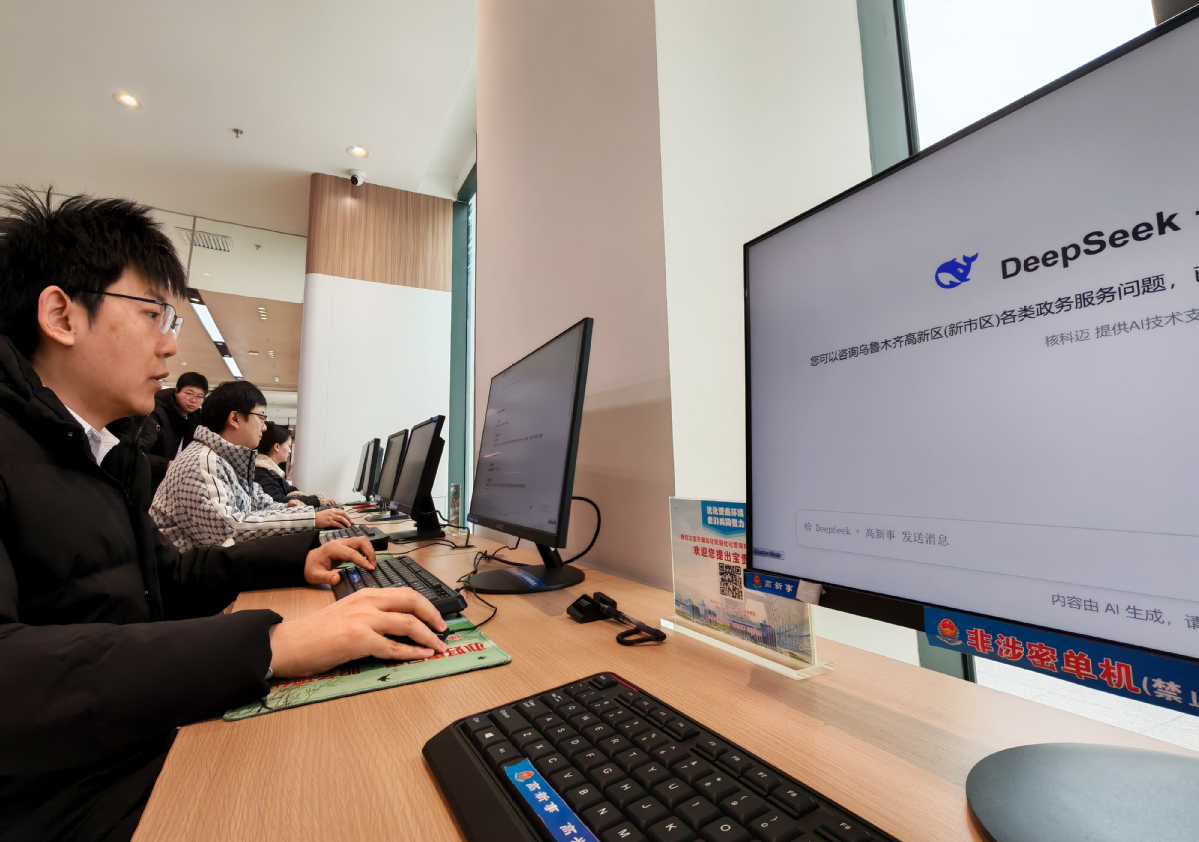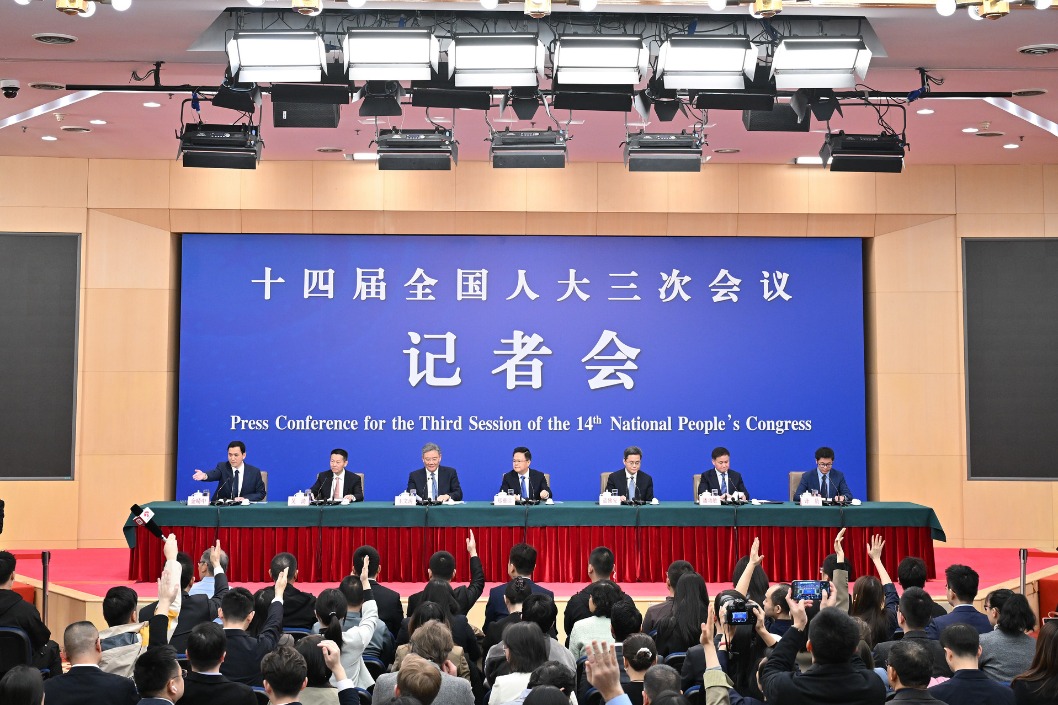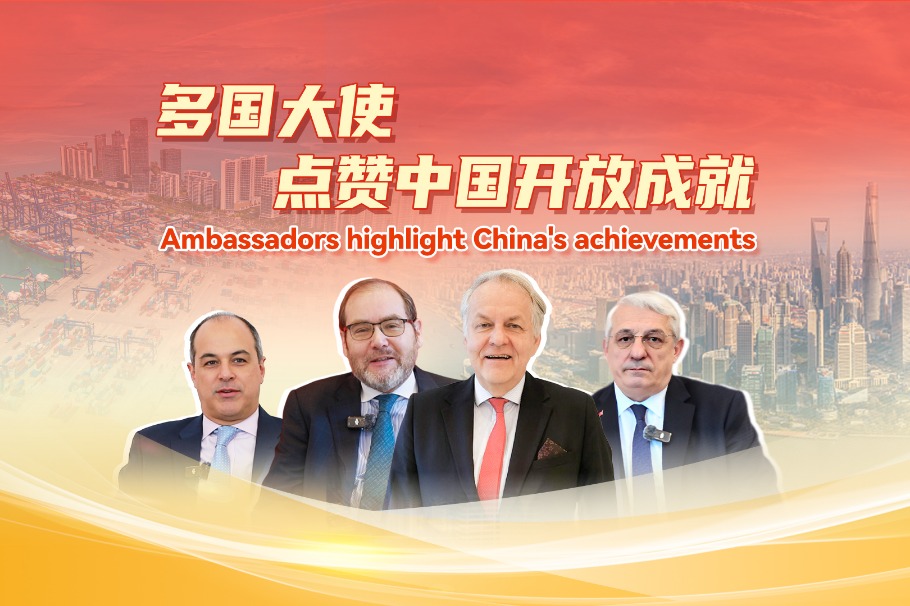Private sector playing key role in growth
China signals strong dedication to fostering high-quality development of nonpublic economy via targeted policy measures


Looking ahead, Nan said, inspired by the top leadership's remarks, his company will make greater efforts to foster new quality productive forces and promote the integration of emerging industries with cutting-edge technologies such as AI, the internet of things and big data.
Chint is ramping up efforts to expand its presence in strategic emerging industries like graphene new materials and hydrogen power, Nan said, adding it will constantly cultivate new industries, new models and new growth drivers that feature green, low-carbon and sustainable characteristics.
Private companies have become a key driving force behind China's economic ascent over the past decades, and the backbone of the nation's innovation drive. They contribute more than 60 percent of GDP, 70 percent of technological innovation and 80 percent of urban employment, official data show. By the end of September 2024, the country's 55 million registered private enterprises made up over 92 percent of all businesses in China.
Zhang Jun, chief economist at China Galaxy Securities, said the top meetings demonstrate that the country has attached great significance to the private economy, signifying that private enterprises are expected to play a more crucial role in promoting economic transformation and developing new quality productive forces.
"A series of targeted and detailed supportive measures aimed at resolving the practical issues faced by private companies will likely be introduced in the future," Zhang said.
Private enterprises should devote more resources to strategic emerging industries, such as artificial intelligence, new energy, biomedicine and other fields, so as to capitalize on new development opportunities, Zhang added.
A notable feature of the recent high-level symposium was the wide participation of companies from high-tech and strategic emerging industries. Among the attendees were Huawei's Ren Zhengfei, BYD's Wang Chuanfu, Will Semiconductor's Yu Renrong, and Xiaomi's Lei Jun.
The participants also included Liang Wenfeng, founder of Deep-Seek, a Chinese AI startup that has taken the world by storm recently through the release of its cost-efficient AI model, and Wang Xingxing, CEO and founder of Unitree Robotics, whose humanoid robots performed a Chinese folk dance at this year's Spring Festival Gala.
During a similar symposium in 2018, China's top leadership said that the country will unswervingly encourage, support and guide the development of the nonpublic sector and support private enterprises in developing toward a broader stage.
From the symposiums and key meetings that outline plans for the country's reform and development, China's support for the private sector has been evident and continuous.
In July 2023, the CPC Central Committee and the State Council, China's Cabinet, issued a top-level guideline detailing 31 measures to promote the development of the private sector, such as facilitating private enterprises' access to funding, reducing market entry barriers and promoting fair competition.
According to a resolution adopted by the third plenary session of the 20th Central Committee of the CPC, held in July 2024, the country will make greater efforts to improve the long-term mechanism for private enterprises to participate in major national projects, support capable private companies in leading significant national technological and innovation projects, and provide private enterprises with greater access to major national scientific research infrastructure.
The National Development and Reform Commission established a bureau dedicated to serving the development of the private sector in 2023.The NDRC has pledged to expedite the revision of its negative list for market entry and further remove barriers to market access for private enterprises, while encouraging greater private sector participation in major national projects and programs.
Zhou Maohua, an analyst at China Everbright Bank, said: "The private sector has become an important force for promoting Chinese modernization, and plays an increasingly vital role in stabilizing economic growth, creating job opportunities and bolstering technological innovation."
He said that the country's commitment to bolstering the growth of the private sector through concrete measures will be conducive to creating a more stable, transparent and predictable business environment, and propelling private enterprises to strengthen investment in research and development and achieve more technological breakthroughs.
Noting that some private enterprises have been facing mounting pressures, such as rising production costs and financing difficulties, Zhou said: "It is important to encourage financial institutions to step up support for micro, small and medium-sized enterprises, deepen reform to eliminate barriers that hinder the development of the private sector, and support private enterprises in enhancing innovation capacities."
The country is also pushing forward the legislative process of its first basic law specifically aimed at promoting the development of the private sector. The draft law seeks to tackle these issues by reinforcing fair competition, improving financing conditions, fostering technological innovation and strengthening legal protections.
Hong Yong, an associate research fellow at the e-commerce research institute of the Chinese Academy of International Trade and Economic Cooperation, said the country's push to draft a law on promoting the private economy reflects its firm determination to support the private economy, with a specific focus on strengthening protection of private companies' property rights, as well as the rights and interests of entrepreneurs, via legal means.
He added that "the legislative efforts will not only remove systemic barriers and address the pressing concerns of private enterprises, but also invigorate the dynamism of market entities and bolster the development of new quality productive forces".
Noting that the private sector serves as a primary engine for economic growth, Hong called for more efforts to expand financing channels and reduce financing costs for private enterprises, strengthen financial assistance to private investment projects, optimize the market environment for fair competition and reinforce intellectual property protections.
























